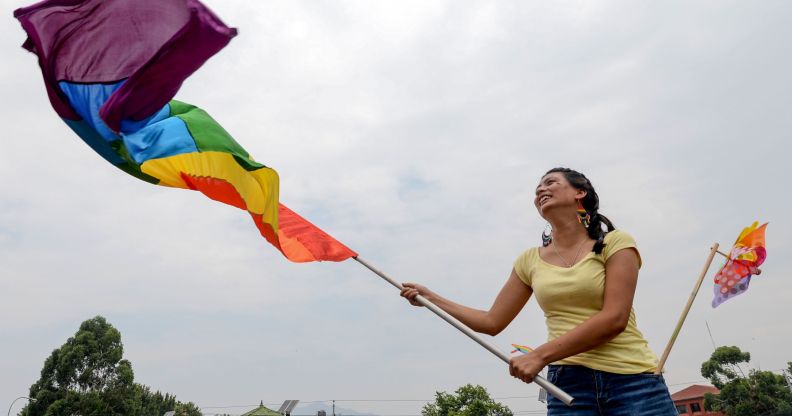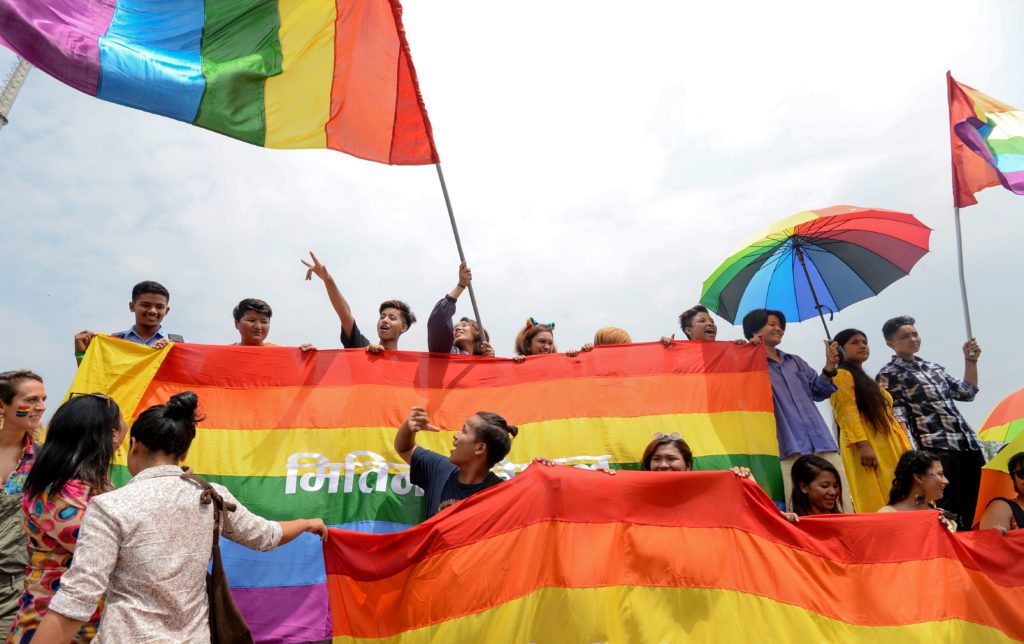Police arrest five over the murder of a trans woman who was strangled to death with electric cable wire

Members of Nepal’s LGBT+ community hold placards as they take part in a Pride Parade in Kathmandu on June 29, 2019. (PRAKASH MATHEMA/AFP/Getty Images)
Nepal police arrested five youths over the murder of a trans woman, found strangled to death with an electric cable wire. Her body cast into a gorge.
Ajita Bhujel, 29, was a sex worker found dead on January 17. Detectives believe she was killed over a dispute over payment.
The group, who were aged between 18 and 25, had offered her रू 7,000 to have sex inside a pick-up truck.
However, while in the Thana Bharyang, Hetauda, the people refused to pay, local media reported.
What happened in the murder of this trans woman?
An altercation was ignited after the group refused to pay her.
It led to Bhujel being strangled inside a truck with cable.
The suspects, investigators said, then dumped her body into a gorge along the Kanti Rajpath, a highway that cuts across central Nepal.
At a press conference in Hetauda Tuesday, police announced the arrests of five suspects.
District police chief Sushil Rathaur described how investigators had combed the crime scene and discovered the victim’s mobile phone.
Tapping into it, detectives found numerous correspondences between the victim and the suspects.
The Metropolitan Police Crime Division, Teku and Makawanpur District Police Office had all joined forces to make the five arrests.
However, Rathaur added that two alleged suspects are still at large.
LGBT+ rights in Nepal.
The landlocked country in South Asia sees the Himalayas loom large, but the struggle for LGBT+ recognition looms larger.
While the country’s equality and discrimination laws are amongst most progressive in Asia, queer citizens are pinned down by social pressures to conform.

Members of Nepal’s LGBT+ community hold placards as they take part in a Pride Parade in Kathmandu on June 29, 2019. (PRAKASH MATHEMA/AFP/Getty Images)
The Nepali Civil and Criminal Code does not recognise same-sex marriage and defines marriage as a union of two people of opposite genders.
However, the legalisation of homosexuality in 2007 carved a path for greater trans equality. The Nepalese Constitution, approved by lawmakers in 2015, includes an array of provision to protect trans and non-binary people.
This ranges from a third gender option on many government-issued identification documents, discrimination based on gender identity being prohibited and inclusive public services.
Nepal’s LGBT+ community witnessed the country’s first Pride last year. Held in Kathmandu, the country’s capital city.

